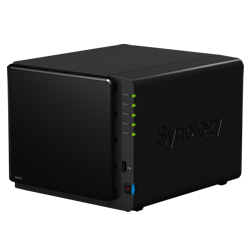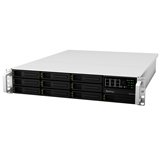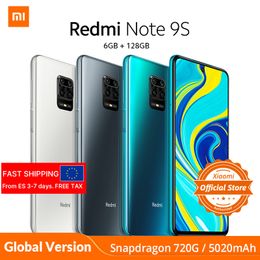One of the highlights of our visit to Computex in Taiwan this year was to get to know the people in person that we have been emailing with over the last few years. Our regular readers know that we have been reviewing quite a few NAS units from Synology, along with several other brands in the storage field. We feel that Synology is probably the strongest player in this hotly contested market because of the excellent software that accompanies their innovative hardware.
Naturally we were excited when Synology extended an invitation to visit them both at the Computex exhibition as well as in their head office. We took this opportunity to meet with key people and interview them regards their future direction, particularly as it pertains to Australia. Here are some initial reflections but most of the information we gathered will help to flesh out further reviews we will do on Synology gear in the coming year.
First some background information on Synology as a company. Surprisingly, despite the high profile that the Synology brand carries, they have only been operating since 2000. It really is amazing to see the scope and size of the business which is headquartered in Taipei with factories in Taiwan.
“Booth Babes or Best Choice?
I was pleased to see that Synology did not have to resort to using “booth babes” to draw attention to their products! Most of the big players like Gigabyte, Microsoft and Intel all had a bevy of cute schoolgirls to attract attention to their “wares”… They may have been a big attraction for all the geeks out there but it cheapened the experience of visiting their stands. The Synology stand was manned by professionals who clearly knew their products. We had some good chats with Mark Hong, Laney Shen and Willie He.

One of Synology’s DiskStations, the DS413, won the “Best Choice” award at Computex this year, making it two years in a row that they have taken out the top award in the data storage category!
Strategy for Growth
After Computex was finished we visited their head office in Taipei and had the pleasure of briefly meeting with Vic Hsu, the CEO, who took time out from his busy schedule to see us. Most of the time was spent with marketing specialist Laney Shen and Andrea Passwater who, as account sales manager, is also responsible for the Australian area.
After a brief overview of all the company’s product lines by Wayne, we asked questions about their marketing strategy for Australia, how it differs (if at all) from other approaches in the rest of the world. Synology has a number of distributors and online resellers for our area and the growth of sales in our country has been “very healthy”. We were interested to see whether the trend towards cloud storage would have an impact on the traditional reasons to have NAS units but, even though it may shift the placements of the boxes, data still needs to be stored somewhere in ever increasing quantities. As mentioned in earlier reviews, I’m not a big fan of cloud storage for critical data and the MegaUpload debacle underscores my point. I do use it judiciously for photos and other non-critical data or backups. Synology does not seem to be too worried about the trend towards cloud storage.
When asked what they saw as the biggest growth areas for the company they mentioned the traditional consumer and enterprise segments but also the surveillance market with full featured NVR. An interesting feature here is the fisheye de-warp software which can take in a large area through the fisheye and undo the distortion that comes with using these lenses. Undoubtedly, with our cities turning into giant Big Brother spy centres, huge data storage needs will follow. Synology were actually the first to integrate surveillance solutions into a NAS server back in 2008.
It was good to see that our question on the proliferation of mobile devices and their impact on NAS remote control, has already been implemented in the upcoming release of DSM 4.1. It’ll be great to be able to query the status of your storage devices via your mobile phone and to act upon it.
Naturally, of the couple of dozen questions we fielded them, we had to ask them this one: where do you see the main selling points/advantages of Synology’s products over that of the competition? We had a fair idea after testing half a dozen different brands but it was good to hear it from their perspective as well. Primarily they see the third-party cooperation and their DSM software as key for continued growth but also added two more factors that are more or less hidden from our eyes: internal testing and support. Both factors are fairly critical to minimise RA rates which are very low already. In fact, we have never had a unit fail on us but we did have many hard drive failures. NAS units can be configured to deal with these HDD failures in such a way that it will never impact access to your critical data.
Coming Soon…
Synology also showed us what they have in the pipeline for the next year and we’d love to tell you about that. In fact, we will do just that one box at the time over the next 12 months…. Yes, we will review every major product release coming up and to make the experience interesting for our readers every unit will be written by a different reviewer so that we will have many diverse perspectives on the new products. For one or two reviewers it may be their first foray into NAS technology as they review the entry-level units – just like it will be for some of you – and for the more seasoned contributors we have been promised some more capable products. We’ll start the series with arguably the best of the current product line, the enterprise level RS3412RPxs, a 10 bay rack mounted unit that with the help of a 10GbE card will make the throughput phenomenal. You will read the first review of this product on this site before too long as we have received this unit recently.

Lastly, we would like to thank the team at Synology for their hospitality and for their cooperation to make these reviews and this interview possible.


